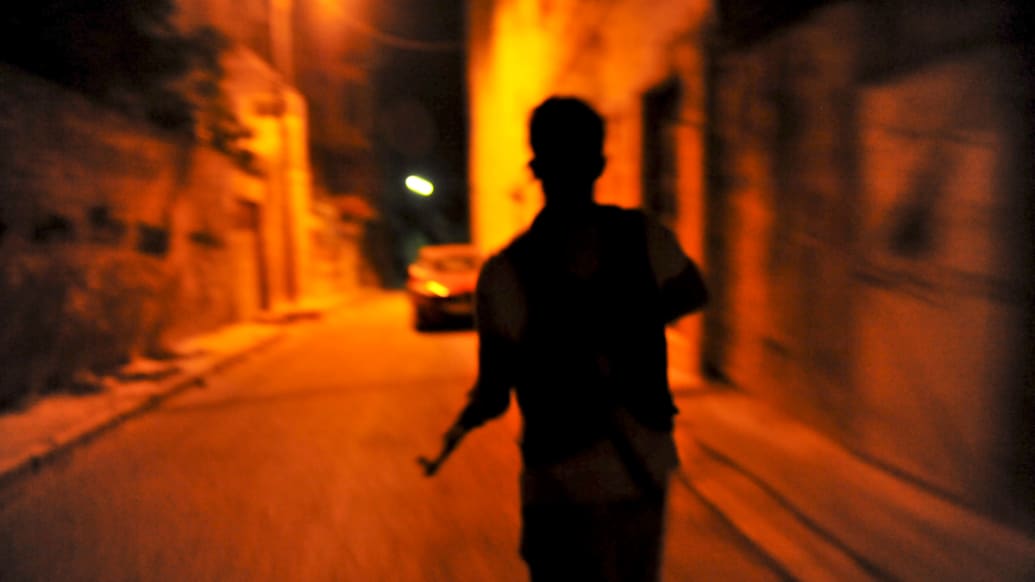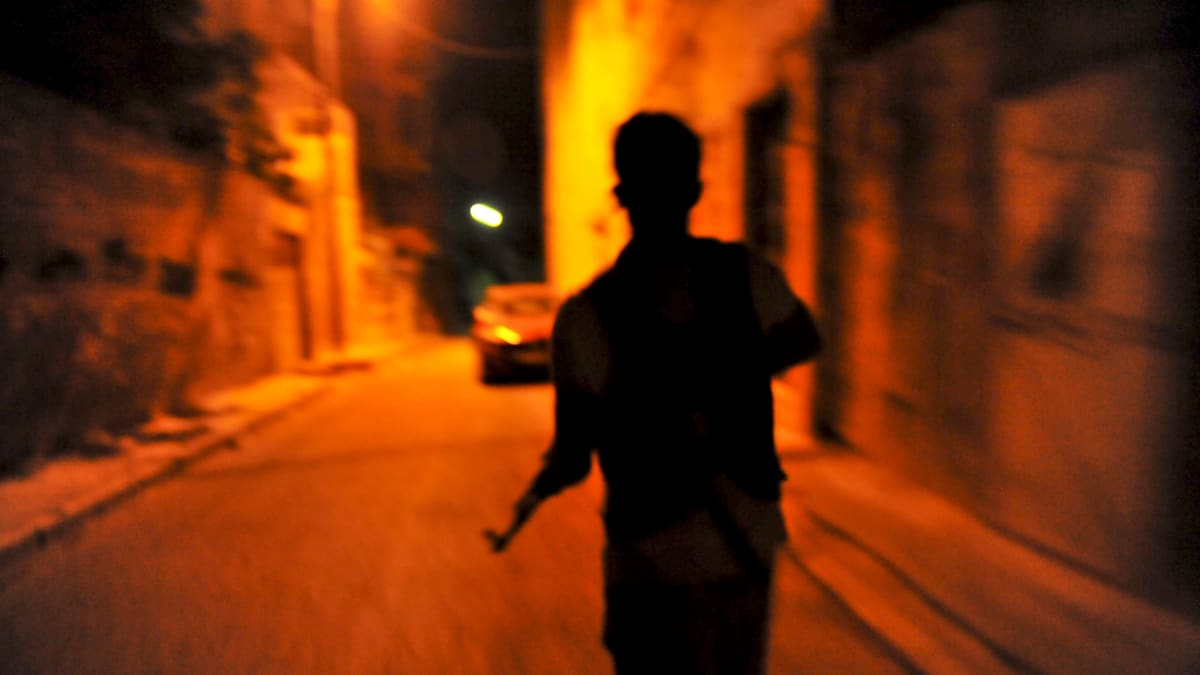The main civilian hospital in Al Bab, Syria, sits on the highest mountain in the city, overlooking the old military base where president Bashar al-Assad’s forces fired artillery rounds at it just one month ago. Its windows are shattered and its walls have gaping holes where the rockets hit. Debris crumbles from the ceiling and blinking lights dangle from single strands. But inside the destroyed entrance, down the blackened hallways, through the blown-out doors, there is a room with a light on.
A mother and father stand next to their 3-month-old boy, the only patient in the building. The boy makes small gasping sounds as the oxygen pumps into his lungs. He had been born prematurely and this hospital, though intense fighting has devastated it, is the only medical building in Aleppo province with enough oxygen to keep the baby alive.
“The hospital in Aleppo refused him as a patient,” the mother says. “They just didn’t have enough resources to help.”
The family didn’t know how they would coordinate medical care for their baby after the battle for Al Bab. The city was left in disarray—local governing bodies fell apart and half of the city’s buildings were closed. But, the family says, the Free Syrian Army (FSA) helped them find a doctor who was able to give their child around-the-clock care. The rebel group reopened the hospital just a few weeks ago and has staffed the building with a dozen FSA soldiers to protect it.
The FSA is working to sustain order in the city after the administrators and officials from the regime were forced out of Al Bab. But with 80 percent of its forces sent into active battles, FSA oversight is stretched thin.

As I drove through the city with local FSA officials, we surveyed the physical damage. Rockets fall almost every other day, the rebels told me. Usually, they come in rounds of two, hitting random targets. Half of the city’s most important buildings, including schools and hospitals, have crumbled. There has been virtually no cleanup, and there probably won’t be anytime in the near future. Al Bab has no official street-cleaning task force. After the liberation of the city, the FSA asked people on the streets to walk around their neighborhoods and conduct their own cleaning campaigns.
But the people of Al Bab seemed to have sidestepped the devastation, sometimes literally. Even in the hardest-hit areas, children still play soccer in the streets, dodging pieces of glass.
“We are not experts yet,” Mohammad Zaher Zakrat, leader of the FSA’s Al Baker battalion in Al Bab, says. “But we are getting much better."
The rebel group appointed new officials to oversee local governance and established a quasi-police force. Shops have reopened for business and the local market is almost always full.
Despite the veneer of normalcy, though, it’s impossible to forget that Syria is at war. Not at war with another country, but with itself, which is creating deep rifts between neighboring cities. More than 700 displaced people have fled to Al Bab from places such as Homs, draining what little resources the city has left. Most of them live in apartment buildings donated by wealthy businessmen in the area. The FSA offers them support through the central relief office in the city, but officers say most of the displaced are supporters of the regime.
“And we still help them,” one officer says to me with a smile. “We welcome them in, but we don’t like how they don’t support the FSA.”
The rebels have gained popularity among the people of Al Bab, though, even the youth. It’s like a love story: the FSA soldiers are there to save them from the Assad regime. The radio stations in the city have even begun to play FSA fight songs. When children on the streets see an officer drive by, they flash a smile, wave peace signs in the air, and chant “jaysh al hur!” (“Free Syrian Army!”) Many of the young males won’t return to school. The rebels have begun to recruit men in the area to work for them, some of them as young as 15 years old. They will staff the local checkpoints and stand guard at important rebel administrative buildings.
Despite their recruitment, there are simply not enough trained members of FSA to coordinate a legitimate city council, or a strong criminal-defense campaign. Officers working in the makeshift jail on the outskirts of town say that theft in the surrounding area has increased in recent weeks. They try to control the situation the only way they know how—arresting people based on hearsay.
I visited the officers in the jail, an old bank, and saw a hand peeking out from what looked like a cell. There were two men inside.
“Who are they?” I asked one of the security guards.
“They were arrested and brought in on theft charges,” he said. The men in the cell didn’t know when they would be released. No one knew. There are no rules in wartime, it seemed. The FSA rebels will hold them indefinitely.

